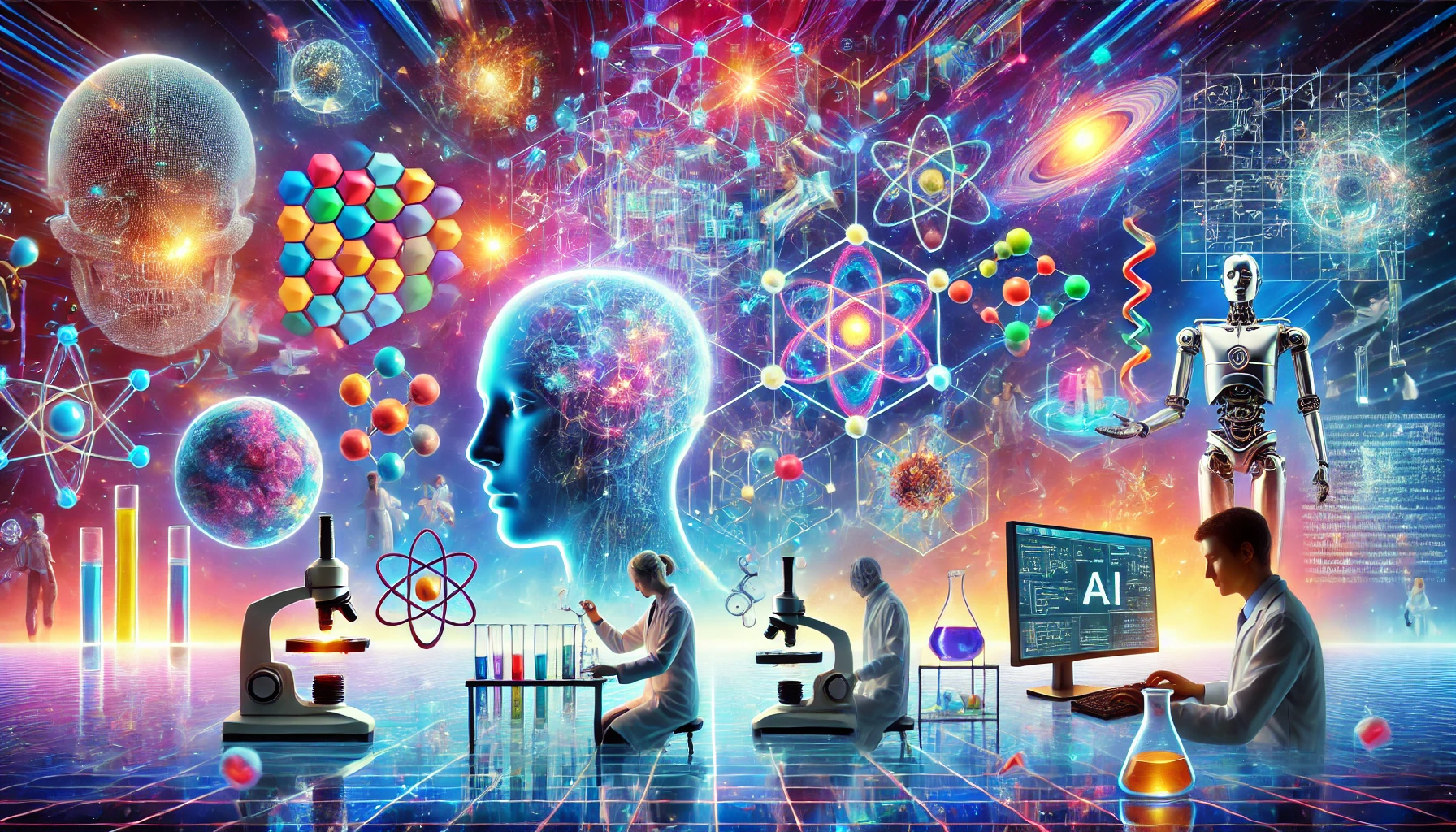How AI is Revolutionizing Scientific Discovery: From Drug Research to Quantum Physics

The AI Revolution in Science
Artificial intelligence is no longer just a sci-fi concept or something reserved for tech giants and robotics enthusiasts. Today, AI is making waves in scientific discovery across multiple disciplines. From biology to astrophysics, AI is pushing the boundaries of what’s possible. But what exactly does this mean for the future of research? Let's dive into how AI is reshaping the landscape of scientific exploration and why it’s the ultimate game-changer.
AI in Drug Discovery: The Fast Track to Finding Cures
Drug discovery used to take years—decades even—before a new drug could be developed, tested, and approved. Thanks to AI, that timeline is shrinking faster than your average Netflix binge. Machine learning algorithms can now analyze vast datasets in the blink of an eye, identifying potential drug candidates that would have taken researchers ages to find. The big question is, will AI finally give us the cure for diseases like Alzheimer’s and cancer? Well, if it keeps up at this pace, we might be in for some groundbreaking cures sooner than we think.
Materials Science Meets AI: Building the Future, One Molecule at a Time
Ever heard of materials that can heal themselves? Sounds like something out of a Marvel movie, right? Well, AI is helping scientists design new materials with properties we could only dream of before. By running complex simulations and predicting how molecules will behave, AI is speeding up the development of super materials that could revolutionize industries. Imagine buildings that could repair themselves after an earthquake, or clothes that adapt to your body’s temperature. The possibilities are endless, and AI is the key to unlocking them.
AI in Astrophysics: Mapping the Final Frontier
Space—the final frontier, as they say. But with AI, we’re starting to map that frontier a little faster. Astrophysicists are using AI to sift through mind-boggling amounts of data from space telescopes, making discoveries that were previously impossible. From identifying distant galaxies to spotting potential new planets, AI is doing the heavy lifting, so scientists can focus on interpreting the data. Who knows? Maybe AI will help us discover life on another planet sooner than we ever expected. NASA, are you listening?
Quantum Physics and AI: Making Sense of the Insensible
Quantum physics is known for being mind-bending, confusing, and often leaving you wondering if reality is even real. Enter AI. In this field, AI is being used to simulate quantum systems and predict outcomes that would be impossible for even the most brilliant human minds. With AI taking the wheel, real-time experimentation in quantum physics is becoming a reality. Scientists are now able to test their theories and models without having to wait for years of lab work. If AI can make sense of quantum physics, what can’t it do?
Real-Time Experimentation: Changing the Game for Biology and Physics
Gone are the days when experiments took months to set up and years to analyze. Thanks to AI, real-time experimentation is becoming a reality, particularly in fields like biology and physics. Researchers can now run simulations and analyze data on the fly, making faster, more accurate predictions. In biology, this could mean finding new treatments or understanding complex ecosystems in ways we never thought possible. In physics, it could lead to breakthroughs in understanding the fundamental laws of the universe. Either way, AI is making the process faster, more efficient, and incredibly exciting.
The Ethical Questions Around AI in Scientific Discovery
As with any major technological breakthrough, the rise of AI in scientific research brings up some ethical questions. Who owns the discoveries made by AI? Should an AI algorithm get credit for a scientific breakthrough? And how do we ensure that AI is used responsibly in sensitive fields like medical research? While the potential benefits are enormous, these are important questions that need to be addressed as AI continues to evolve and become an integral part of scientific discovery.
The Future of AI in Science: What’s Next?
With AI continuing to advance at a rapid pace, the possibilities for scientific discovery seem almost limitless. Could we one day see an AI scientist winning a Nobel Prize? Will AI discover new laws of physics, or perhaps even develop a theory of everything? While we can’t predict the future, one thing is certain: AI is here to stay, and it’s going to play a huge role in shaping the future of science. So, what’s next? Only time—and perhaps a few clever algorithms—will tell.
Conclusion: Can AI Discover the Next Big Scientific Breakthrough?
AI is undeniably revolutionizing the way we approach scientific discovery. From drug research to quantum physics, AI is helping scientists unlock the mysteries of the universe faster than ever before. But with so much potential, it leaves us with one burning question: What will AI discover next, and how will it change our understanding of the world? Only time—and maybe a few smart machines—will tell.



